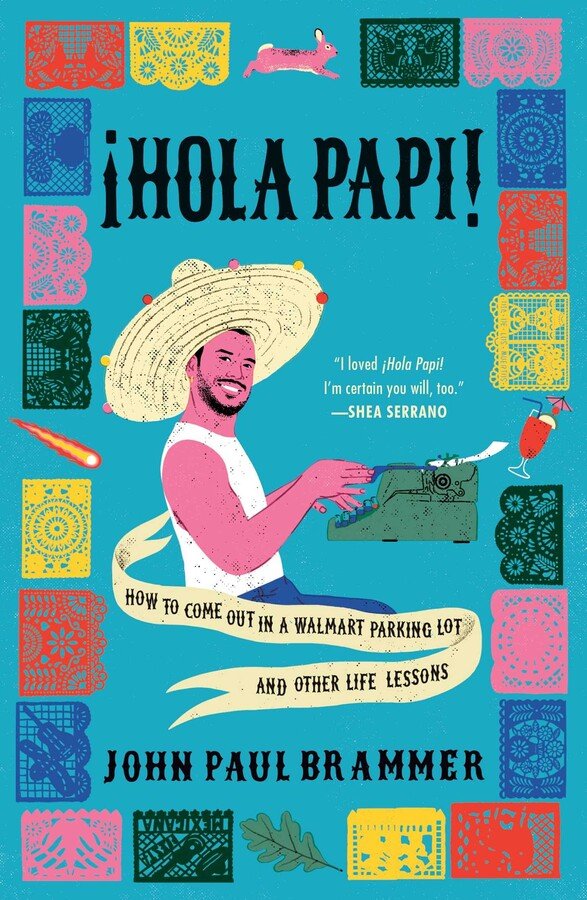Hola Papi: How to Come Out in a Walmart Parking Lot and Other Life Lessons by John Paul Brammer is a debut autobiography comprised of a series of essays that provide advice from how to be a real Mexican, surviving heartbreak, working an unfulfilling job, fashion, and more. Brammer’s experiences take place in multiple settings from Oklahoma to Washington, D.C. to New York, making it even more relatable to a wider audience.
Right off the bat, it immediately felt like Brammer was a Papi with whom one could easily confide in and ask questions. Brammer creates this comfort and trust by sharing a plethora of experiences throughout multiple points of his life in a vulnerable manner. He begins by discussing how difficult it was to be himself in school due to the intense bullying he experienced. He also discusses his experience of having a girlfriend for the first time and navigating the difficulty of easily mirroring her affection while experiencing a boundary due to his sexuality.
While sharing his life experiences, Brammer does an excellent job discussing overarching themes such as the pressure he faced to fit in. One of my favorite examples was when he discusses lazy masculinity and how it affects his everyday life such as his fashion choices. The paradox of lazy masculinity influences him to carefully select clothes that will help him appear straight, even though caring about clothes in the first place is seen as a feminine practice. Brammer discusses the specific aesthetic that must be reached in order to satisfy a sexuality and essentially avoid more bullying or fit in. As a reader, it is easy to sympathize and understand the hardship that Brammer consistently experiences, to be someone he is not.
This debut blew me away as a reader. There is so much to relate to even as a completely different person. There is a sense of community in feeling lonely and lost. As a half Mexican and half Korean person, Brammer’s chapter on “How to Be a Real Mexican” really spoke to me as I am sure it did to other multi-racial people. Brammer discusses how he felt disconnected from Mexico but was still able to connect with other Mexicans and eventually feel more Mexican through his interactions with coworkers at a tortilla factory. All it took was a simple hola from him and he was immediately greeted as a paisano, which translates to countryman, in a familiar and welcoming manner. From here, he was able to create an irreplaceable bond with these Mexican men and feel the validation of being a real Mexican. It was endearing to have someone relate to the sense of community one can immediately feel when one finds someone from their home country, even if that same person doesn’t feel like they belong.
Brammer ended the book beautifully by answering if he was even qualified to help others. Brammer creates a full circle by bringing back an anecdote from the beginning of the book about how he looked up to a Swede as an authority figure while he was becoming more comfortable with his sexuality. He emphasizes that everyone has the capacity to be an authority but advice might just be someone sharing their experience instead of someone telling someone what to do. I really appreciated his ability to take a step back and acknowledge his limitations as an advice columnist. It is extremely important to recognize that there may be situations in which “advice” can be harmful. As a reader who fell in love with Brammer, I viewed this chapter as Brammer gaining even more trust and credibility as a Papi.
Book trigger warnings: sexual assault and suicide.
Mariana Felix-Kim (she/her) lives in Washington, D.C. with her lovely cat, Leo. When she is not working in the environmental science field, Mariana is constantly reading. Her favorite genres include non-fiction, thrillers, and contemporary romances. Mariana is half Mexican and half Korean. You can find her on Instagram: @mariana.reads.books









